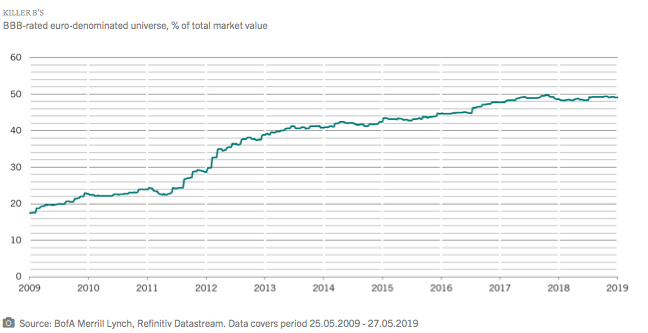
Pictet AM: Rewarding stress - investing in distressed securities
Galia Velimukhametova, Senior Investment Manager, Gareth Payne, Senior Client Portfolio Manager: "Special situations investing offers potentially attractive returns at all points of the investment cycle."
13.06.2019 | 08:22 Uhr
Britain’s high street might be an unfolding catastrophe – celebrity chef Jamie Oliver’s eponymous chain is just the latest in a litany of failing mid-market eateries and retailers – but it also represents an opportunity.
Indeed, this isn’t just true of the UK. DIA in Spain, Steinhoff, listed in Germany and South Africa, and French group Rallye have all come under financial stress recently, allowing adept investors to generate attractive returns.
The ability to either buy or short sell a company’s debt, according to circumstance, is at the heart of this sort of special situations investing. For instance, if the market has yet to fully price in how much a company is struggling financially, it’s possible to make a return by selling its debt short. This involves close analysis of stressed corporate credit, which is to say when it trades below its face value and its yield rises to 10 percentage points above benchmark government bonds with the same maturities.
Then, when the issuing company defaults or enters bankruptcy – in other words the debt becomes distressed – skilled investors can earn returns by buying back the debt if they anticipate the company will be successfully restructured or if its remaining assets are undervalued.
An approach for all seasons
Historically, this style of investing has generated strong returns. Over the past 20 years, investing in distressed fixed income has achieved annual returns of 7.2 per cent against 6.8 per cent for global high yield bonds1.
One reason for this is the asymmetric nature of credit. Normally trading corporate debt generally doesn’t offer much upside – a sudden improvement in a bond issuer’s credit ratings or falling government bond yields can give some uplift, but by and large most of the return comes in the form of regular interest payments. By contrast, if a bond issuer defaults, the hit to a fixed income portfolio can be heavy and long-lasting. Which is why shorting the fully-priced debt of companies running into problems can be so rewarding.
By the same token, the potential gains from buying and holding distressed debt can also be significant – not least
because once companies go into default markets often underappreciate the true value of their debt securities,
particularly when they don’t trade very often.

Distressed assets can also add stability to a diversified portfolio. In contrast to equities and higher grade corporate bonds, which tend to perform badly in economic downturns, that’s a time when it becomes particularly rewarding to short struggling corporate credit.
The asset class has typically delivered positive returns when traditional asset classes, and particularly equities, tend to be doing badly. Companies tend to take on debt during good times and then suffer when the business cycle turns.
But because it’s always possible to find struggling firms, even when default rates are negligible, special situations
investing can generate strong net returns over the whole of the cycle. The most flexible total return strategies involve both
selling debt short and taking long positions – with the added bonus that returns from these investments don’t tend to
move in lockstep with major asset classes.
Der gesamte Fixed Income Monthly Huni 2019 von Galia Velimukhametova und Gareth Payne, Pictet Asset Management steht hier als PDF zum Download bereit.




Diesen Beitrag teilen: